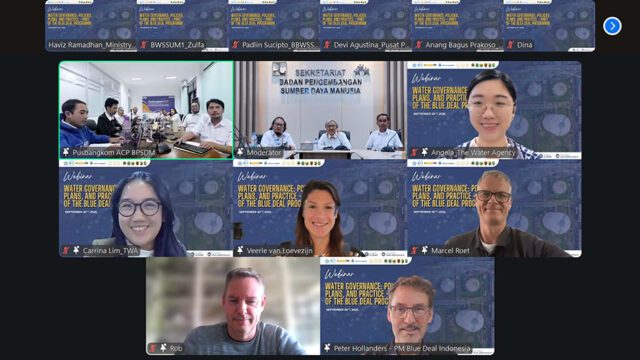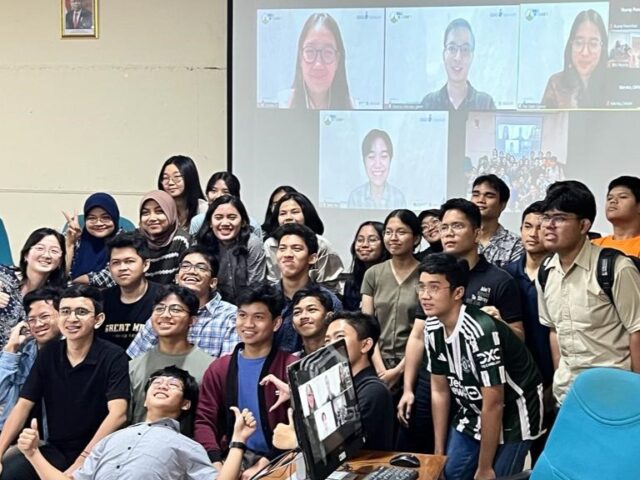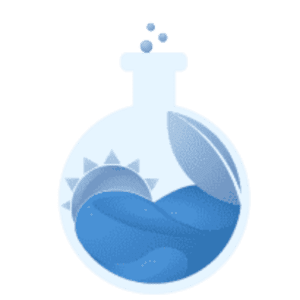Water connects people, places, and priorities, but effective management requires coordination that goes beyond administrative boundaries. Recognizing this, Blue Deal Indonesia, The Water Agency (TWA), and BPSDM co-organized the Integrated Water Resources Management (IWRM) Webinar on 30 September 2025, bringing together representatives from ministries, local governments, and water authorities to strengthen understanding of how policy, planning, and governance work together for sustainable water management. The webinar, held as a prelude to the IWRM Training in Bandung, featured experts from Indonesia and the Netherlands who shared perspectives on regulatory frameworks, planning integration, and governance practices to guide collaboration across sectors and regions. The session was opened by Bapak Doedoeng from BPSDM and closed by Bapak Apri from BPSDM.
Opening Reflections: Water Knows No Borders
The webinar opened with remarks from Peter Hollanders, Program Manager for Blue Deal Indonesia, who emphasized that “water knows no borders.” His opening set the tone by highlighting the need for cooperation and integrated planning at the basin level. Drawing from his experience with the Dutch Water Authority of Delfland, Peter explained how water management in the Netherlands is built on collaboration among multiple government layers and communities. He reminded participants that water challenges are both technical and institutional, requiring coordination between policy, planning, and people.
Session 1: Understanding the Legal and Institutional Landscape
The first presentation was delivered by Sigid Hanandaja D. Pramana, Head of Legal and Organization Bureau at the Ministry of Public Works and Housing (PUPR). He presented an overview of Indonesia’s water resources laws and regulations, including Law No. 17/2019 on Water Resources and its supporting regulations. Sigid highlighted how the legal framework provides a strong foundation for equitable water allocation and environmental protection, yet also pointed out ongoing challenges in aligning national and local implementation. His presentation underscored the importance of institutional clarity, coordination between ministries, and public participation in realizing IWRM principles.
Session 2: Integrating Planning and IWRM Implementation
The second session, presented by Andri Yosa Sabri, explored the link between planning documents and IWRM implementation. He explained how Indonesia’s three main planning instruments — Pola, Rencana, and Program/Kegiatan — serve as a continuum from strategic direction to concrete action. Andri emphasized that while these instruments are well-defined, coordination across agencies and administrative boundaries remains a critical challenge. Through examples of watershed-level collaboration, he illustrated how IWRM can help bridge these gaps and promote systems thinking, ensuring that planning is responsive to both local realities and broader catchment-scale dynamics.
Session 3: Water Governance in Practice
The final session was again led by Peter Hollanders, focusing on Water Governance: Policies, Plans, and Practice. Using the Netherlands as an example, he introduced the three-layer model of water governance: the knowledge layer (policy, information, and expertise), the institutional layer (organization, legislation, and financing), and the relational layer (culture, communication, and participation). He showed how these layers interact to support integrated and adaptive water management.
Peter also explained how the Netherlands coordinates water governance through multiple actors, including the national government, provinces, municipalities, regional water authorities, and drinking water companies, all working under a principle of shared responsibility and cost distribution. His presentation linked water and spatial planning, demonstrating how planning decisions follow the flow of water — not administrative boundaries. Through examples such as flood management programs, stakeholder mapping, and financing mechanisms, Peter illustrated that effective governance depends not only on strong institutions but also on the cooperation, trust, and behavior of everyone involved.
A Step Toward Shared Understanding
Throughout the webinar, participants gained a deeper understanding of how legal frameworks, planning systems, and governance principles can come together to build more resilient water management. The sessions collectively emphasized that IWRM is as much about people as it is about policies and plans. It requires inclusive participation, clear roles, and continuous learning across all levels of governance.
The IWRM Webinar served as a foundation for dialogue and learning, bridging perspectives between Indonesia and the Netherlands. It laid the groundwork for the in-person IWRM Training in Bandung, where participants would apply these concepts in practice. Together, both activities represent the shared mission of Blue Deal Indonesia, The Water Agency, and BPSDM to strengthen Indonesia’s water governance through collaboration, institutional development, and sustained partnership.





